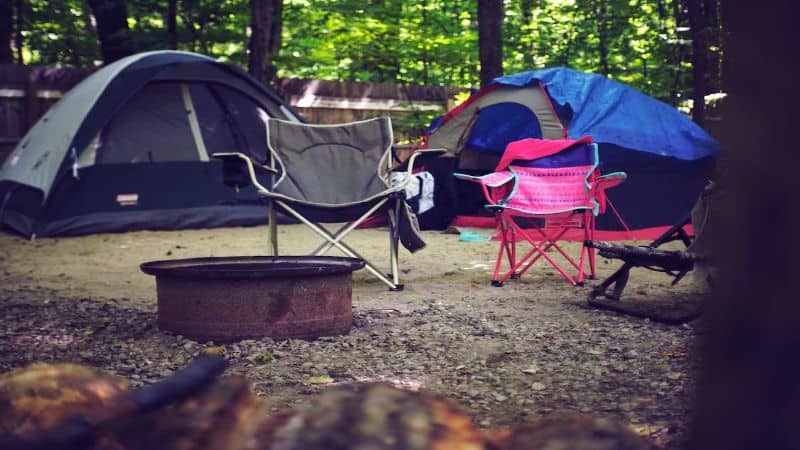When you think of summer, the last thing that comes to mind is hypothermia. But believe it or not, it can happen even in the warmest months. I know it sounds strange, but unexpected weather changes and water activities can catch us off guard, leaving us vulnerable to chilling temperatures.
Understanding Hypothermia
Hypothermia can surprise those of us who love summer camping and outdoor adventures. Even in the warmer months, rapid changes in weather or prolonged exposure to cold water can lead to this dangerous condition.
What Is Hypothermia?
Hypothermia occurs when body temperature falls below 95°F (35°C). This unexpected drop can happen during summer when temperatures fluctuate, especially at night or after water activities. It’s essential to recognize that wind chill and wet conditions increase the risk. Whether I’m hiking, fishing, or sitting by a campfire, staying aware of my surroundings helps prevent hypothermia.
Symptoms of Hypothermia
Recognizing signs of hypothermia is critical. Common symptoms include:
- Shivering: In the early stages, my body will shake as it tries to generate heat.
- Confusion: I might feel disoriented or have difficulty thinking clearly.
- Fatigue: A sudden drop in energy often accompanies the chill.
- Slurred Speech: If I notice changes in my speech, it’s a serious red flag.
- Loss of Coordination: Struggling to perform basic tasks indicates a potential emergency.
If I notice these symptoms in myself or fellow campers, I know immediate action is vital to avoid severe consequences.
Risk Factors for Hypothermia in Summer
Understanding the risk factors of hypothermia in summer can enhance safety during outdoor adventures. Even on warm days, certain situations can expose me to chilling conditions.
Water Exposure
Water activities, like swimming or kayaking, often expose me to cool temperatures that lead to hypothermia. Staying in cold water for extended periods can drop my body temperature, especially if the air temperature is lower than the water. If I get splashed or submerged unexpectedly, even in summer heat, the body cools quickly. Always assess the water temperature and wear a wetsuit if engaging in cold-water sports.
Weather Conditions
Weather can shift rapidly, catching me off guard during camping trips. A sunny afternoon can quickly turn into overcast skies and rain. Wind can intensify cooling effects, making it easier for me to lose body heat. I check forecasts regularly and prepare for temperature drops at night, which could plunge to levels conducive to hypothermia.
Inadequate Clothing
Wearing the wrong clothing can significantly heighten my risk of hypothermia. Lightweight fabrics that fail to insulate against cooling winds dampen my body’s ability to retain warmth. Cotton, though comfortable, retains moisture and cools my body as it dries. I opt for moisture-wicking layers, insulating materials, and windproof outerwear to protect against sudden drops in temperature while I enjoy the great outdoors.
Tips for Preventing Hypothermia
Prevention is key when it comes to avoiding hypothermia during summer adventures. These tips can help you stay warm and safe while enjoying the great outdoors.
Dress Appropriately
Dressing in layers is essential for effective temperature regulation. I recommend starting with moisture-wicking base layers that pull sweat away from your body, keeping you dry. Add insulating mid-layers, like fleece or down jackets, to trap heat. Finish with a windproof and waterproof outer layer to shield against changing weather. Always opt for clothing materials that retain heat, even when damp, like wool or synthetic fibers. Wear a hat and gloves, too; a significant amount of body heat escapes through the head and extremities.
Stay Dry
Staying dry is crucial to maintaining warmth. If you’re engaging in water activities, using a wetsuit or dry suit can drastically reduce heat loss in cold water. After swimming, change out of wet clothes as soon as possible to regain warmth. If rain is in the forecast, waterproof gear helps protect you from chill-inducing moisture. It’s wise to bring extra dry clothes when camping or hiking, especially in areas with unpredictable weather.
Monitor Body Temperature
Keeping track of your body temperature can help prevent hypothermia. Be mindful of the signs, like excessive shivering or sudden fatigue. If I notice any symptoms of hypothermia in myself or fellow campers, I prioritize warming up immediately. Enjoying warm drinks or heading to a sheltered area can help. If conditions worsen, seek medical help promptly. Always know the local weather forecast and be prepared for rapid temperature drops in the evening. Being proactive makes all the difference in enjoying safe and memorable outdoor experiences.
What to Do If Hypothermia Occurs
Hypothermia can sneak up on anyone, even during summer adventures. It’s crucial to act fast if you think someone is experiencing it.
Recognizing Early Signs
I keep a close eye on fellow campers for early signs of hypothermia. Look for shivering, confusion, or unusual fatigue. Changes in coordination, slurred speech, and numbness also signal trouble. If you notice these symptoms, don’t hesitate to take action.
First Aid Steps
- Move to a warm place: Find shelter from wind and wetness, preferably indoors or under a tarp.
- Remove wet clothing: Strip away any damp items as they contribute to heat loss. Replace them with dry, warm clothes.
- Warm gradually: Use blankets, sleeping bags, or any available warm layers. For a quick fix, place warm (not hot) packs in armpits and groin areas to raise body temperature.
- Hydrate with warm drinks: Offer warm, sweet beverages, avoiding alcohol and caffeine, which can worsen dehydration.
- Monitor their condition: Keep checking for changes and remain alert for any worsening symptoms. If they don’t improve or appear very lethargic, seek medical help.
Acting quickly is vital. The sooner you address hypothermia, the better the chance for recovery.
Conclusion
Staying safe in the summer is all about being aware of the unexpected. I’ve learned that hypothermia isn’t just a winter worry. By keeping an eye on the weather and preparing for those chilly surprises I can enjoy my outdoor adventures without a hitch.
Remember to dress smartly in layers and always be ready to adapt to changing conditions. If I ever spot signs of hypothermia in myself or others, acting fast can make all the difference.
Let’s keep our summer fun and safe by staying informed and prepared. Here’s to enjoying the great outdoors while keeping warm and cozy!











